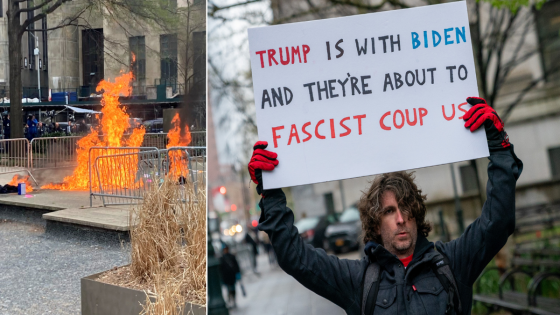A husband-and-wife law firm in Toronto has been shut down, lenders have moved to seize their family homes, and they’re facing 15 lawsuits and a police investigation after millions of dollars in client money went missing from the firm’s trust accounts.
The saga of Nicholas Cartel and his wife, Singa Bui, has plenty of twists and turns, not the least of which is what happened to the huge sums of money allegedly embezzled from Cartel & Bui LLP.
But it also reveals a part of the homebuying process that’s vulnerable to financial manipulation but isn’t closely scrutinized, and the inadequacy of the compensation for homebuyers or sellers who do fall victim.
In interviews and again during a court hearing on Thursday, Cartel asserted he never had a role in financially managing the firm that bears his name, never had access to the trust account and maintained a separate non-real-estate practice. His wife, he said, handled all that.
Neither of them has filed any statements of defence in the lawsuits against them.
One of the plaintiffs, Anthony Ingarra, a Toronto-area mortgage agent whose family says it lost more than $310,000 in their dealings with Cartel & Biu, said the experience has shaken him.
“I’m almost afraid now to make another real estate transaction,” he said. “The general public needs to know that their money isn’t safe in a lawyer’s trust account.”
Ingarra estimates that between his own property investing, his mortgage clients, his friends and his family, Cartel & Bui LLP handled hundreds of transactions involving him over the years — all without a hitch. CBC News spoke with other real estate agents and homebuyers who said their past dealings with the firm were totally fine.

How can you not know, when you’re living with her and you’ve got a home together and you’ve got children together, where $6 million went?– Justice William Chalmers
But something changed early last year. First, business clients who’d sold some assets had to wait a month just to get their proceeds out of Cartel & Bui’s trust account. Then, a family selling a house in Toronto said it took two months to get most of the money — and they still haven’t recovered all of it.
Both cases triggered complaints to the Law Society of Ontario about the firm. But the law society’s investigators didn’t take a close look at the books right away.
Missing money
Then money began to go missing. Starting in September, in a half-dozen southern Ontario home sales — from Milton to Cobourg — handled by Cartel & Bui, the law firm didn’t pay off the sellers’ mortgages as it was supposed to do, according to lawsuits by seven homebuyers.
It took the buyers’ money, paid out the home equity to its client sellers, but held on to the rest, the buyers allege.
In another case, two of the firm’s clients bought Thierry Cohen-Scali’s house in Toronto and the firm held back $465,000 against potential capital gains taxes — as it was required to, because Cohen-Scali lives abroad.
But the engineer, who lives in Florida, said he obtained the necessary clearances from the Canada Revenue Agency in January, and still hasn’t been reimbursed his nearly half a million dollars, as Singa Bui was legally bound to do.
“We have an undertaking from a lawyer. We’ve put money in her trust account — the trust account, right?” Cohen-Scali said.
“If you have an undertaking from a lawyer and you can’t trust [them], then what happens? … The way I understand it is that the undertakings between lawyers is the foundation of the system.”
Wiring money may be less secure
Indeed, most real estate transactions these days rely in some way on lawyer’s undertakings and good faith.
A couple of decades ago, the typical process for closing a home sale in Ontario involved the buyer providing two certified cheques — one made out to the seller’s bank for the remaining mortgage amount on the home, and another to the seller for the balance of the purchase price. That way, only the company holding the mortgage on a home could cash the first cheque and get that money.
Nowadays, buyers’ lawyers usually just wire the money, relying on the promise of the seller’s lawyer to pay off the mortgage from those funds. This introduces a risk that a rogue solicitor on either end of the deal might simply pinch the funds.
“Wire transfer has become a norm and that is very risky, because in spite of the fact that the lawyers are giving undertakings, it may or may not happen,” said Balvinder Kumar, a veteran real estate lawyer in Mississauga, Ont.
Couple provisionally suspended
In all, CBC News found 15 lawsuits against Cartel, Bui or their firm — claiming a total of $15.5 million — over problems to do with real estate. In most of them, the plaintiffs allege they were defrauded and their money embezzled, but the cases also include a lender trying to seize the couple’s $4.5-million house in midtown Toronto for failure to pay the mortgage. Another home in Cartel’s name was seized and sold off in April.
On April 26, the Law Society of Ontario suspended both of the firm’s partners on an interim basis while it continues to investigate where the money from the firm’s trust account went.
CBC News has obtained court and law society documents suggesting their clients’ cash was used to pay the couple’s own mortgages, credit card bills and business taxes. The records show Cartel requested a judge authorize living expenses, including mortgage payments, of $30,655 a month, and the judge called the couple’s lifestyle “fairly extravagant.”
Bui appeared to shoulder the blame for the missing money, at least initially. In a letter to the Law Society of Ontario dated Dec. 1, 2023, a lawyer on her behalf said that Bui was “compelled to advise the Law Society of the improper transfer of trust funds held in trust by Cartel & Bui LLP. Ms. Bui advises that her partner, Nicholas Cartel, is not responsible for the improper transferring of trust funds, nor is any other associate or employee of the firm.”
But according to the law society’s decision to provisionally suspend him, Cartel “appears to have misled” another lawyer who was trying to track down money on behalf of a client, did not take reasonable steps to investigate when faced with evidence his firm’s finances were awry, and failed to deliver bank account statements demanded by a law society auditor.
In a statement to CBC News on Wednesday, Cartel said he is “actively co-operating with all parties and oversight authorities and an auditor … to ensure a comprehensive review of any incomplete transactions and accounting issues.”
At Thursday’s court hearing though, the lawyer for a homebuyer suing him made the opposite case: that Cartel and Bui should both be held in civil contempt for failing to hand over records or answer key questions.
When Cartel argued he shouldn’t be found in civil contempt because his wife handled all their business and family finances, the judge pointedly summed up the matter.
“Six million dollars goes missing. Goes into her account. Did she pay for nice gifts for you? Did you buy a car that she paid for? Did she pay mortgage payments? How can you not know, when you’re living with her and you’ve got a home together and you’ve got children together, where $6 million went?”
Law society criticized
For many of Cartel & Bui’s clients and other people who’ve had to deal with them, the Law society’s suspensions in April came too late. Despite the complaints of financial irregularities at the firm going back to April 2023, a law society investigator only took steps to audit its bank accounts in late November.
During that seven-month span, at least 10 people retained the firm for real estate transactions and transferred money to it; millions of dollars of that money went missing, according to the various lawsuits.

Cartel repeated in court on Thursday that Bui has been hospitalized for most of the last few months.
When CBC reached him by phone earlier this week, he said 15 times during the conversation that a focus for him right now is to “make whole” the people who have lost money, and he committed to using personal funds to do so, if necessary.
It’s a promise he’s been making since at least December, according to court and law society records, with little evidence he’s followed through.
He’s also appealing his interim licence suspension, and maintained he’s in discussions with the Law Society of Ontario about resolving his case so he can go back to work as a lawyer — albeit with some restrictions.
At a previous court hearing on Monday to do with the lawsuits against him, an LSO representative said flatly that that’s not true.
Source Agencies



